The Best of Central Portugal
Central Portugal combines picturesque canals and historic architecture with world-class surf spots and snow-capped mountains...
Fly drive from Porto to Lisbon through the Best of Central Portugal.
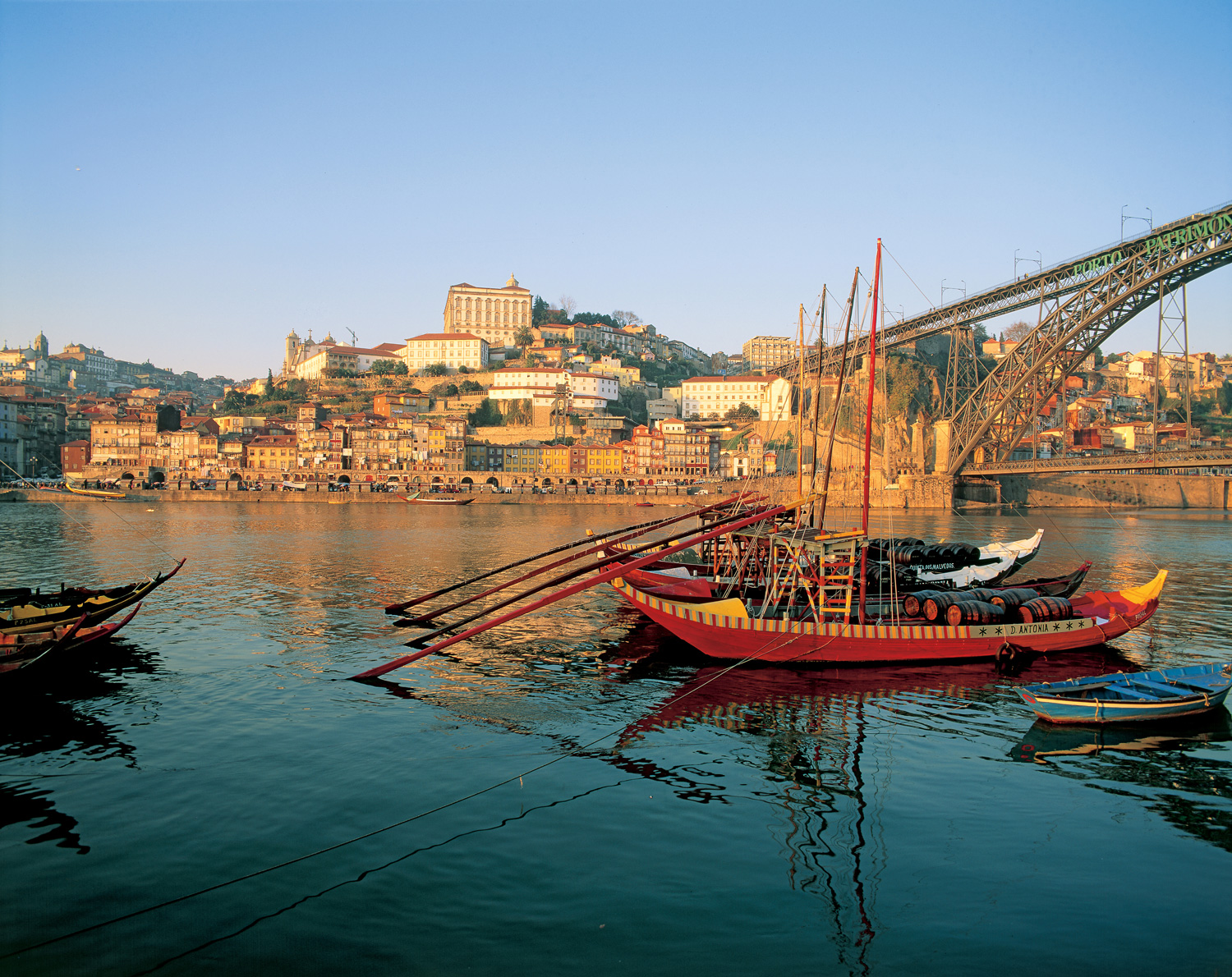
Stretching from the great northern city of Porto to the historic capital Lisbon, Portugal’s Central Region combines picturesque canals and historic architecture with world-class surf spots and snow-capped mountains.
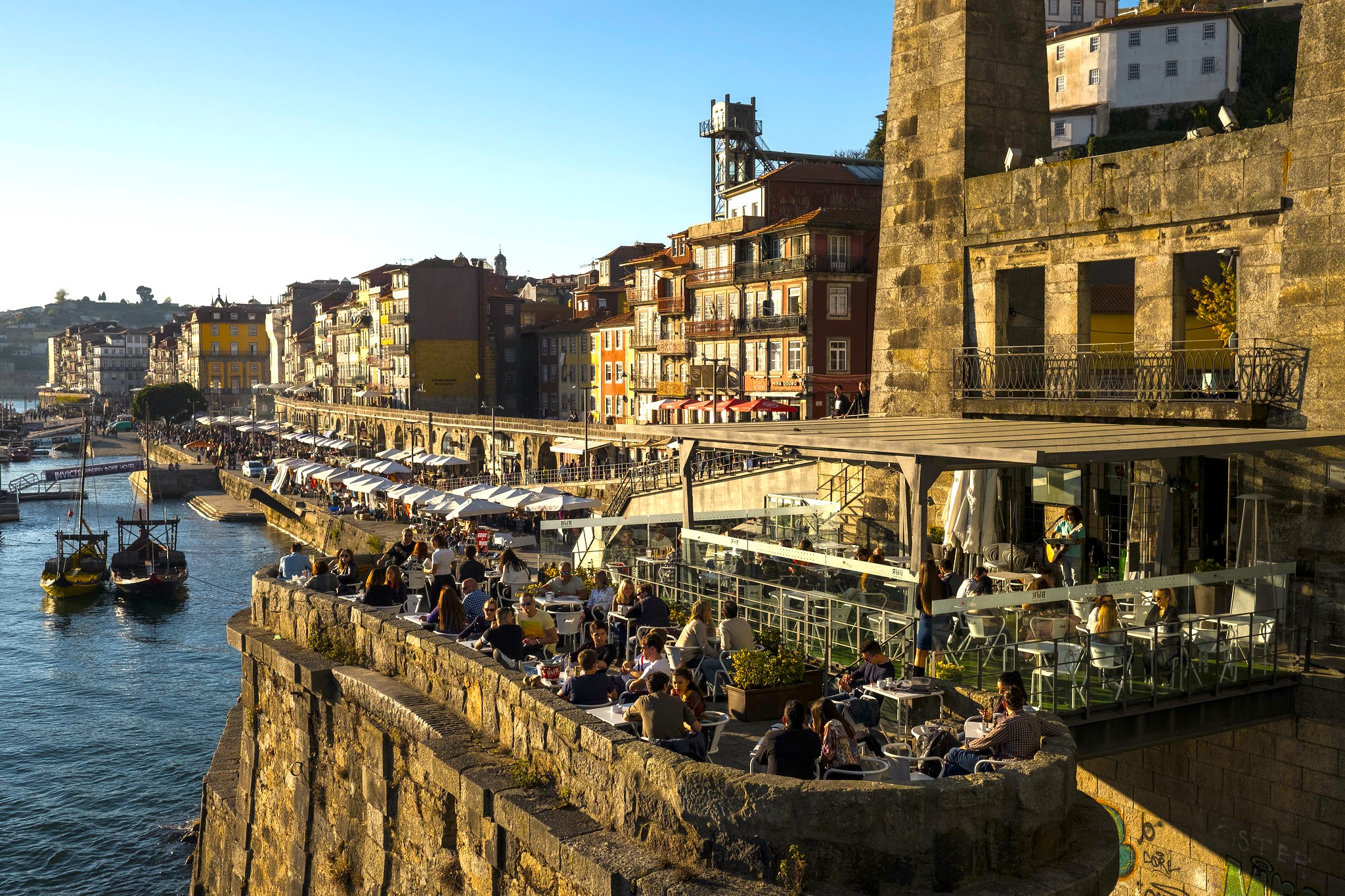
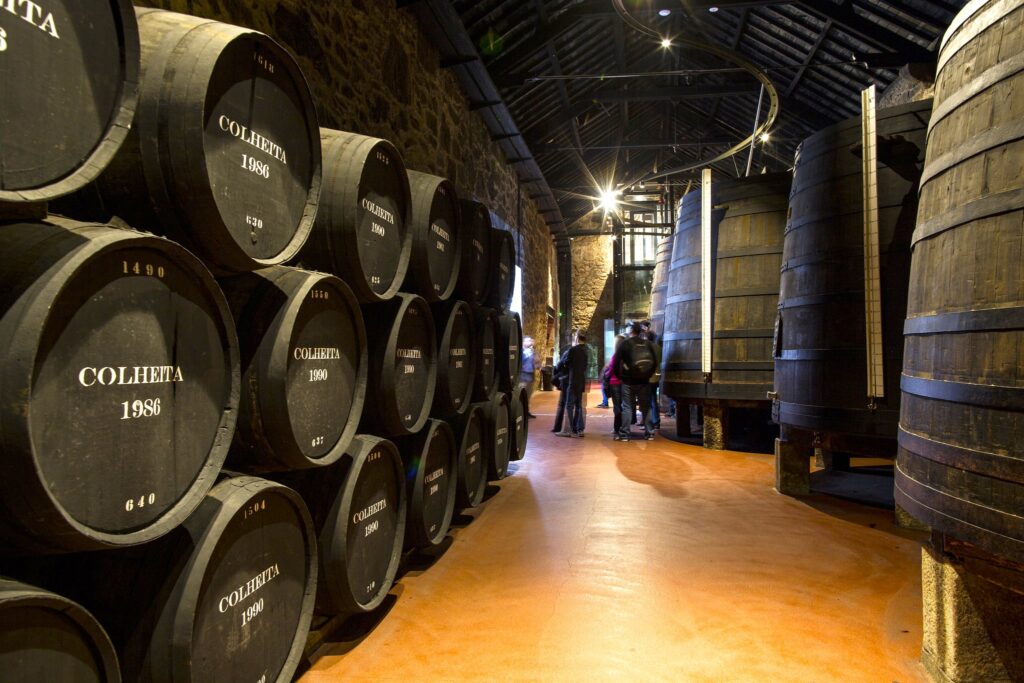
Your holiday begins in bustling Cais Ribeira district, where the iconic the Ponte Luiz I bridge spans the grand Douro River and connects Porto with it’s twin city Vila Nova da Gaia. Gaia’s port houses have watched over the country’s most famous export for two centuries – you’ll have a chance to sample the three main styles of port wine: Ruby (the variation we typically see here in the UK), Tawny (aged longer for a more mellow flavour), and Branco (white port from white grapes, and served chilled).
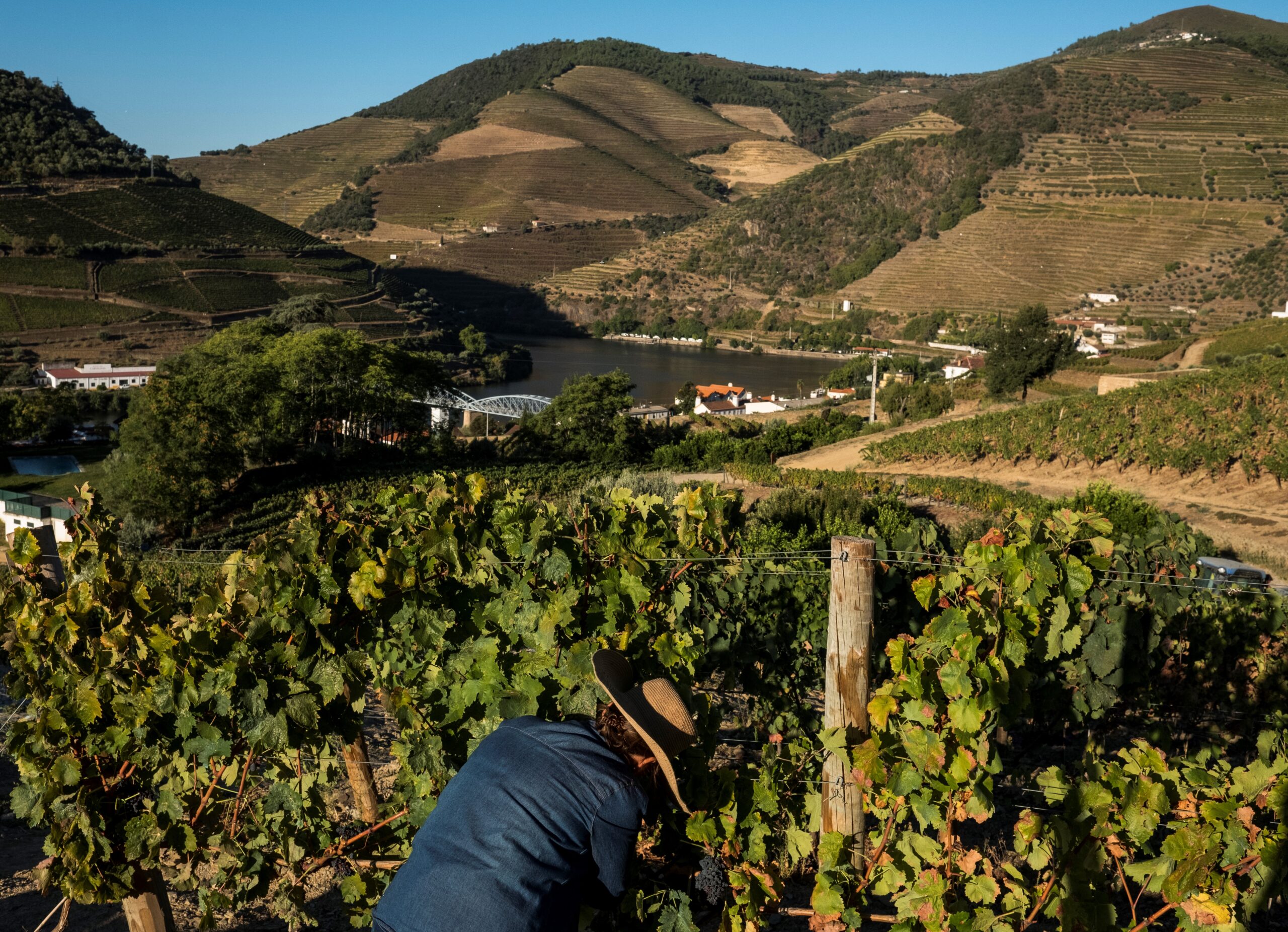
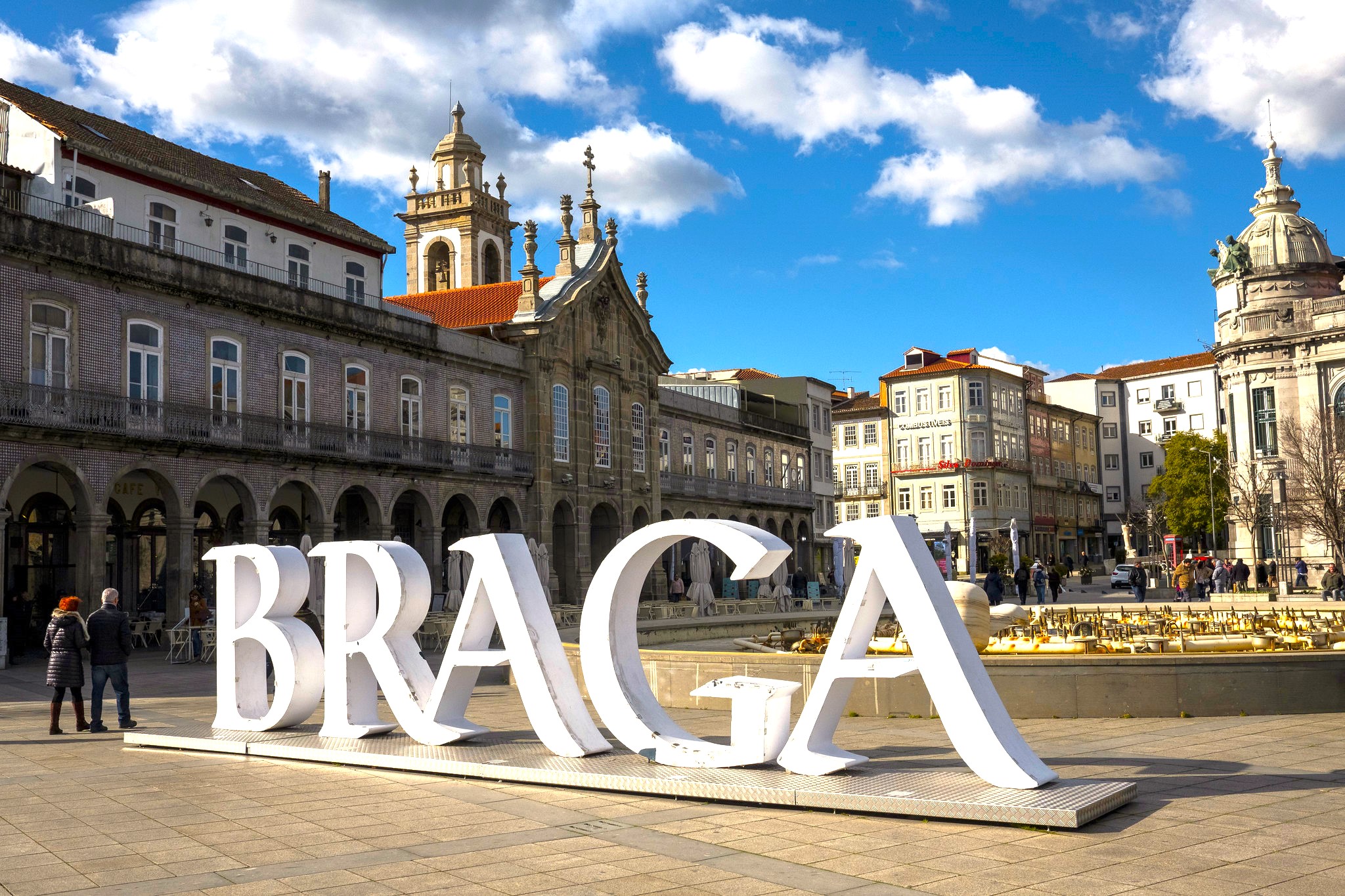
You’ll also take a tour of the valleys and vineyards of the Alto Douro, where wines have been produced for over 2,000 years. To the east, you’ll explore the old roman city of Braga, the baroque roman catholic monument at Bom Jesus do Monte and the 10th century castle in Guimaraes: the birthplace of the Kingdom of Portugal.
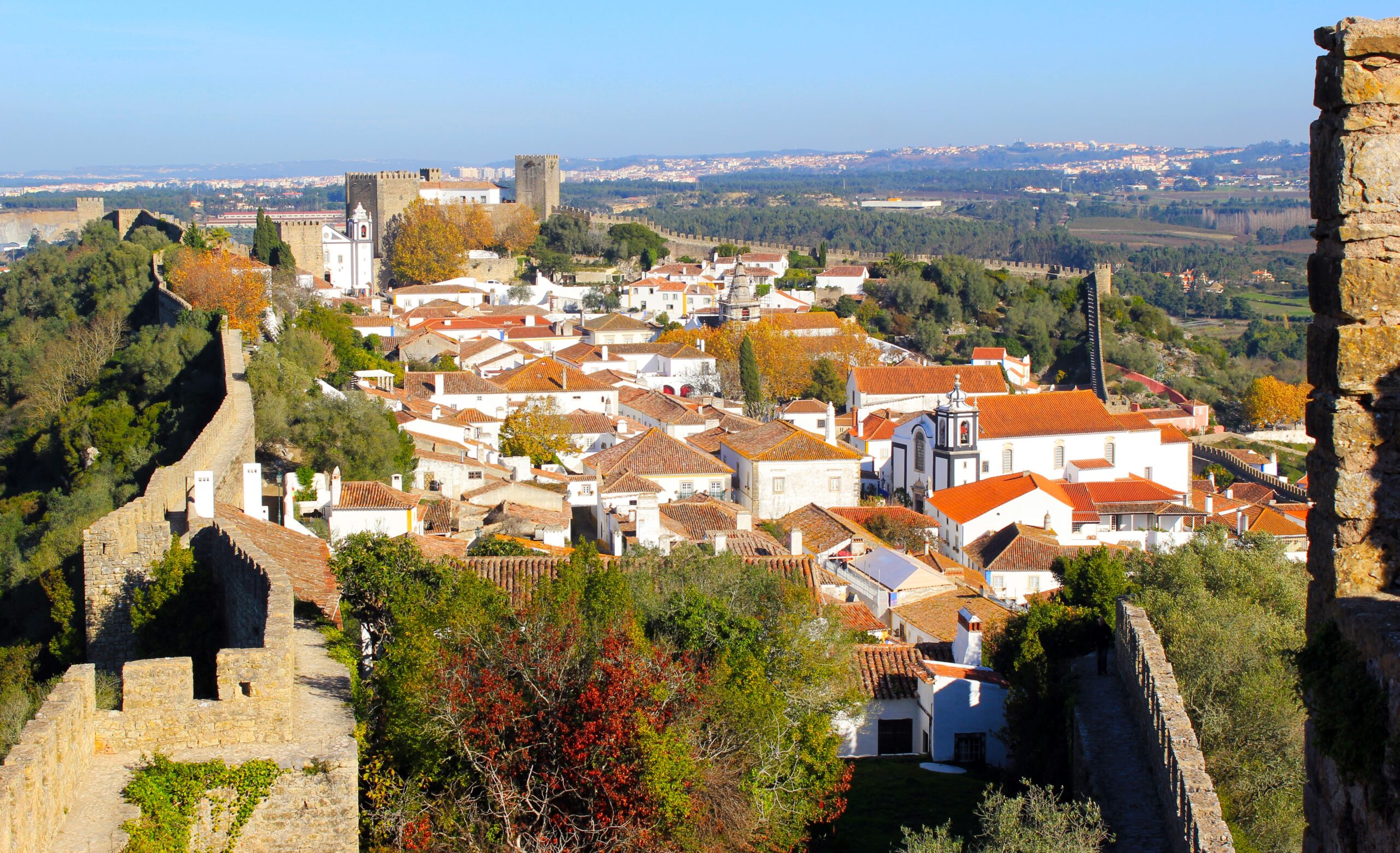
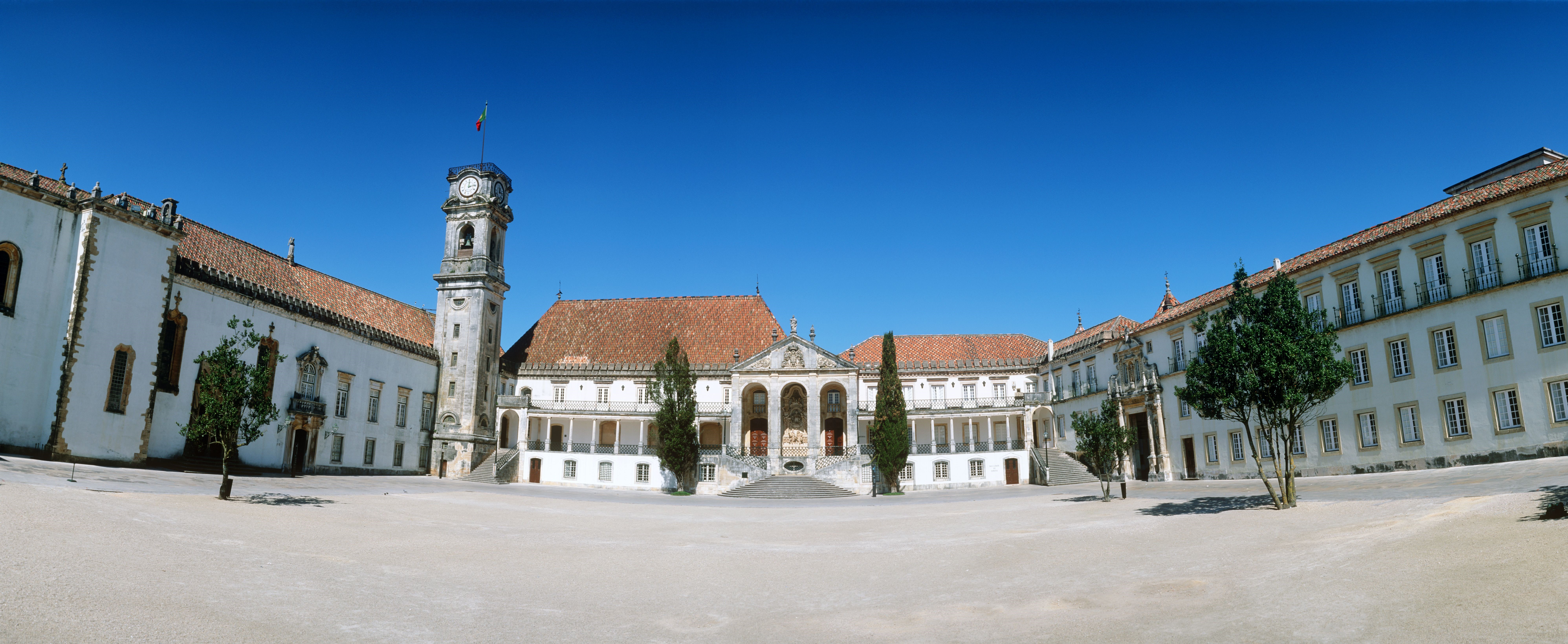
Leaving Porto by hire car, you’ll begin your journey south. Your first stop is the pretty university town of Coimbra, home to Portugal’s oldest academic institution. You’ll also visit the medieval city of Tomar – founded by the Templars in 1118, the UNESCO-protected Convento de Cristo and Castelo Tomar are among Portugal’s most precious historic landmarks.
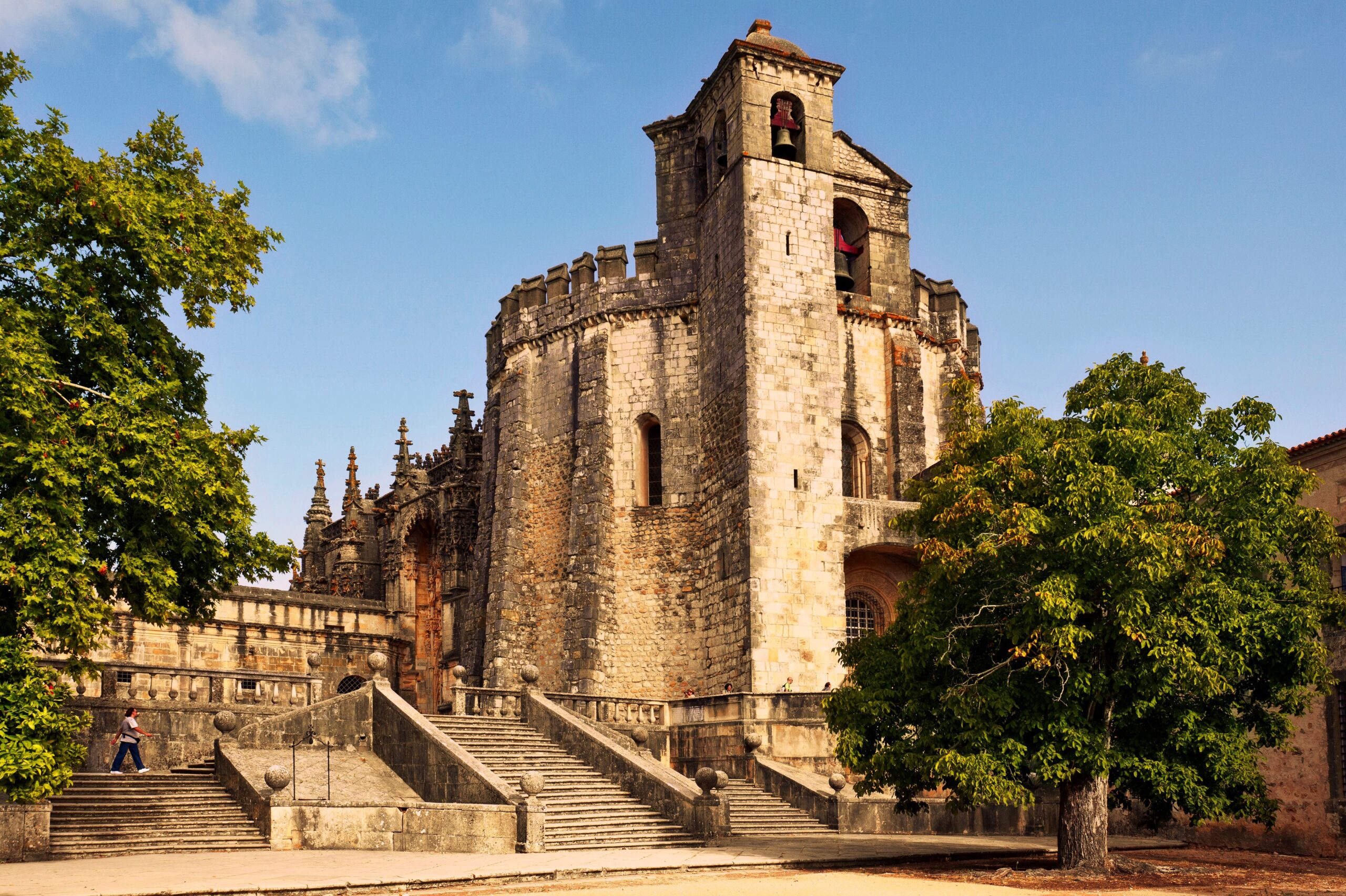
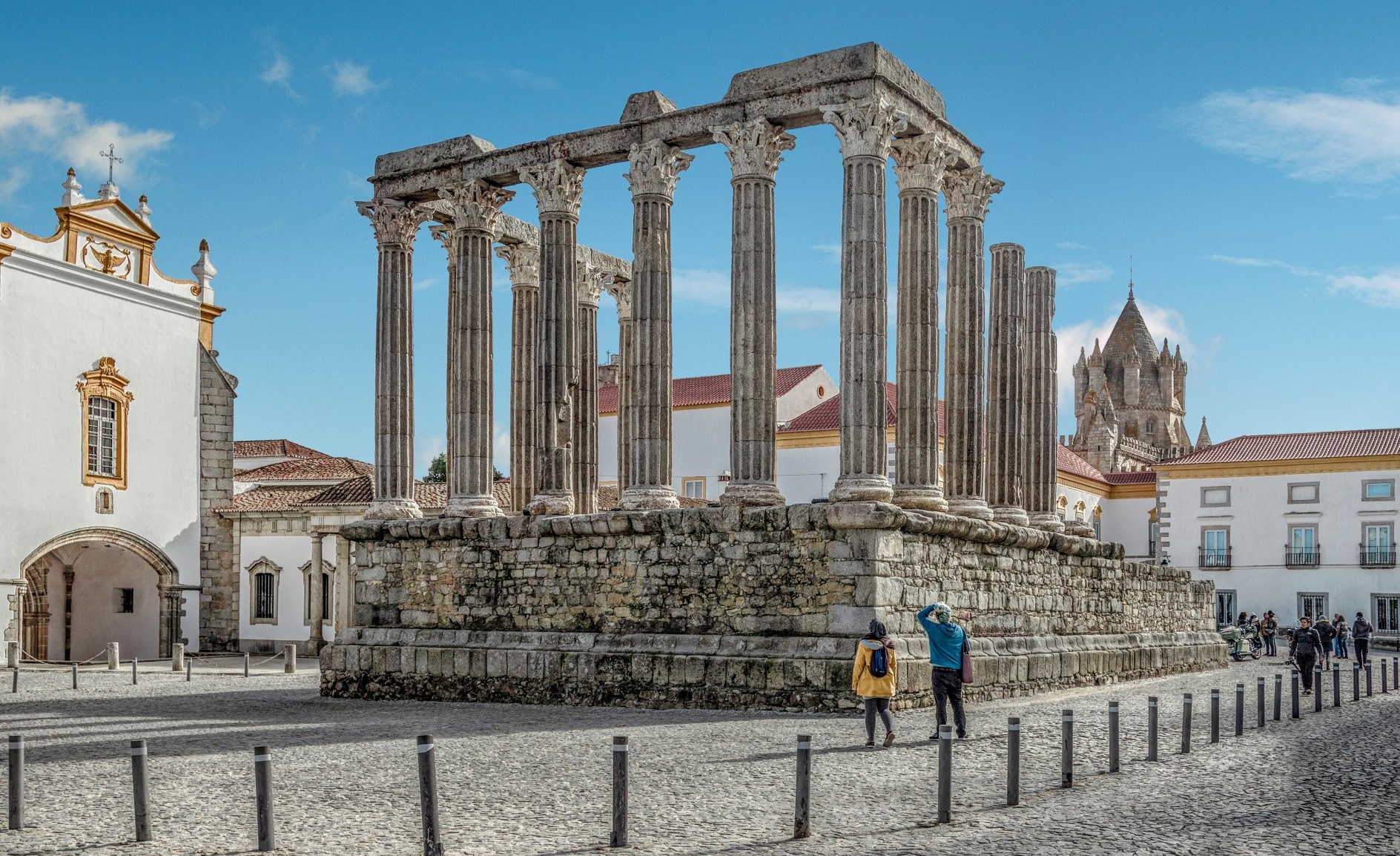
Similarly, in Evora you’ll visit the 1st century Templo Romano Evora – known locally as Diana’s Temple and one of the country’s best-preserved roman sites in Portugal – and the Capela dos Ossos: the macabre Bone Chapel situated in the Igreja de Sao Francisco.
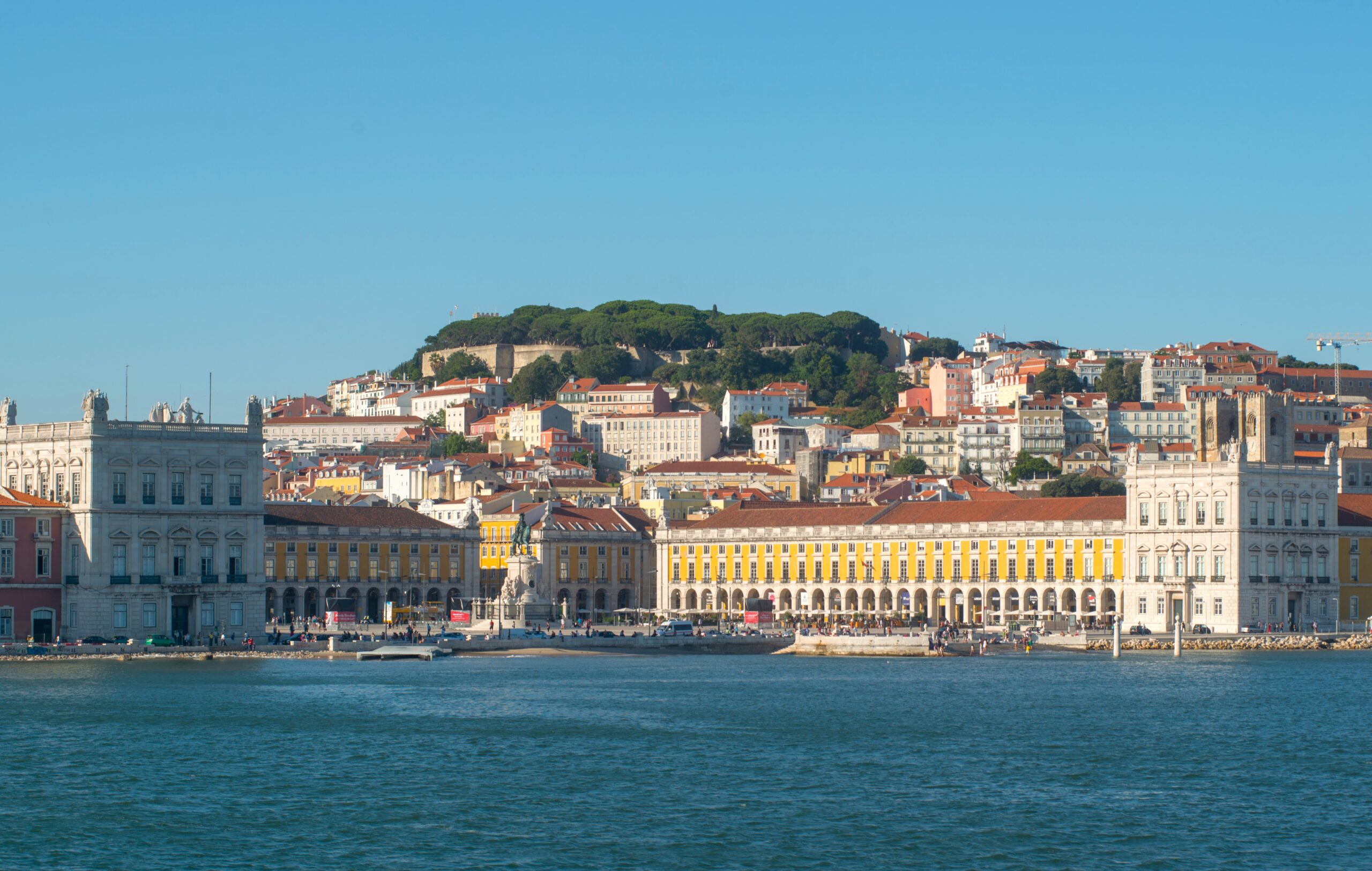
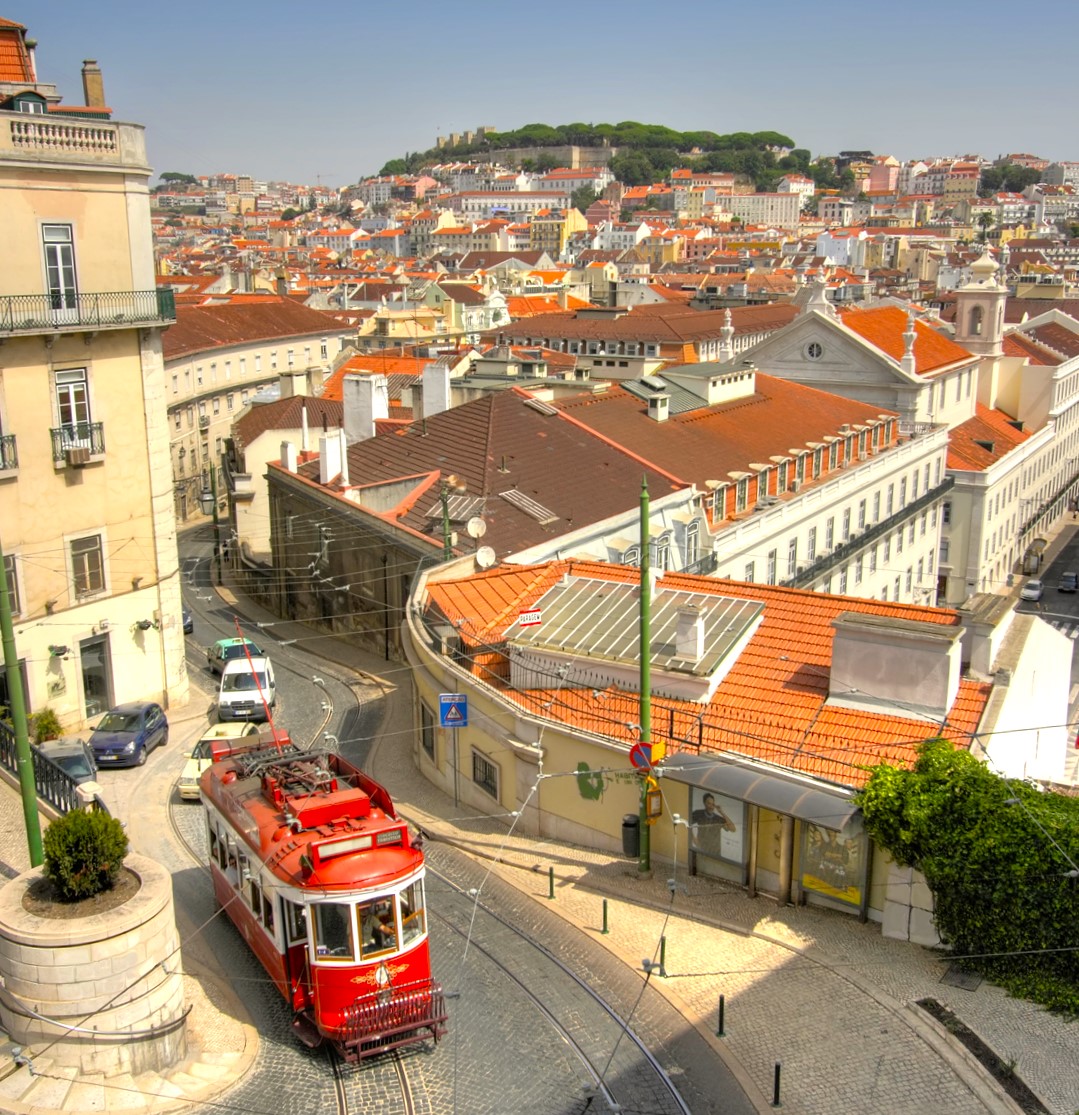
Arriving into Lisbon, you’ll explore the capital on foot and by tuk-tuk with our resident guides, with visits to medieval Alfama, the grand Manueline monuments and monasteries of Belem, and the fairy tale hilltop palaces of Sintra.
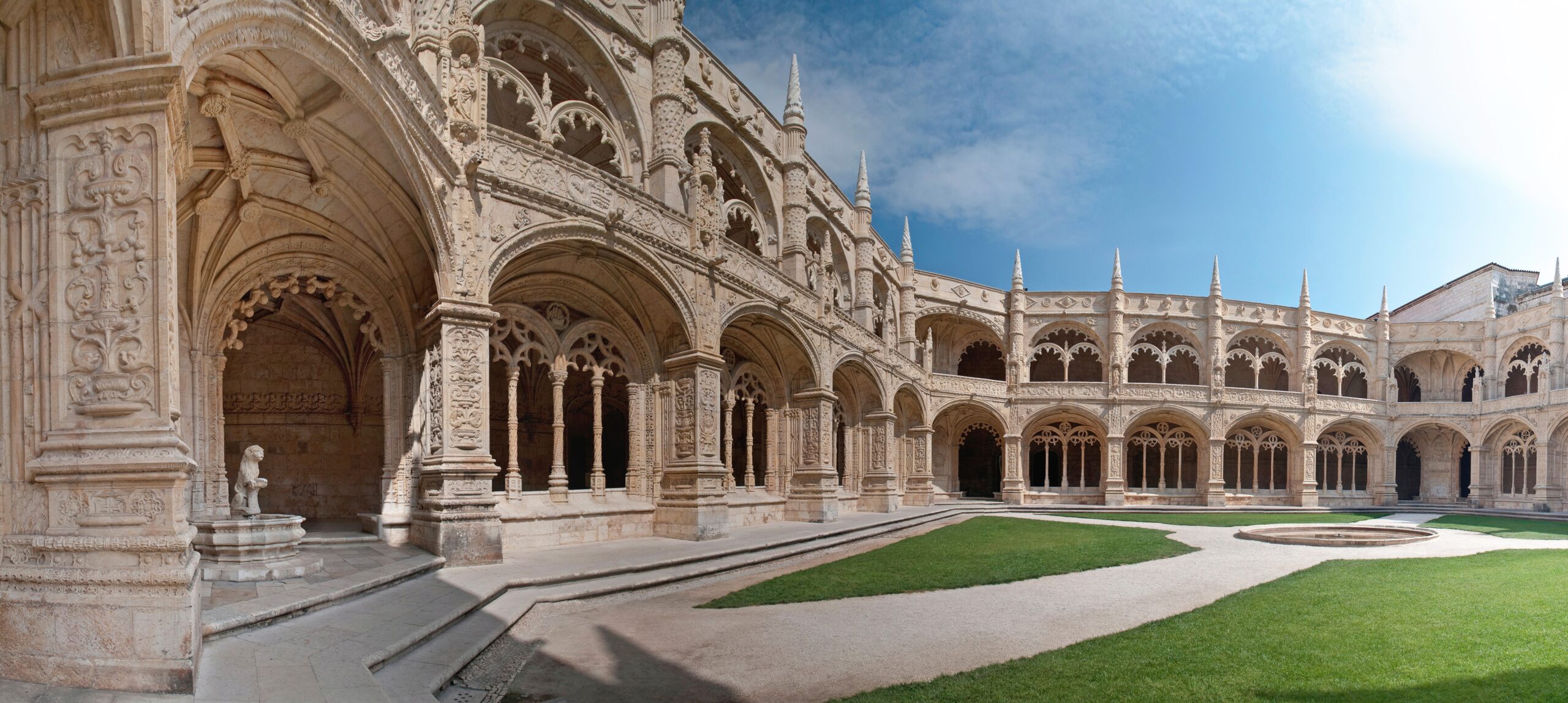
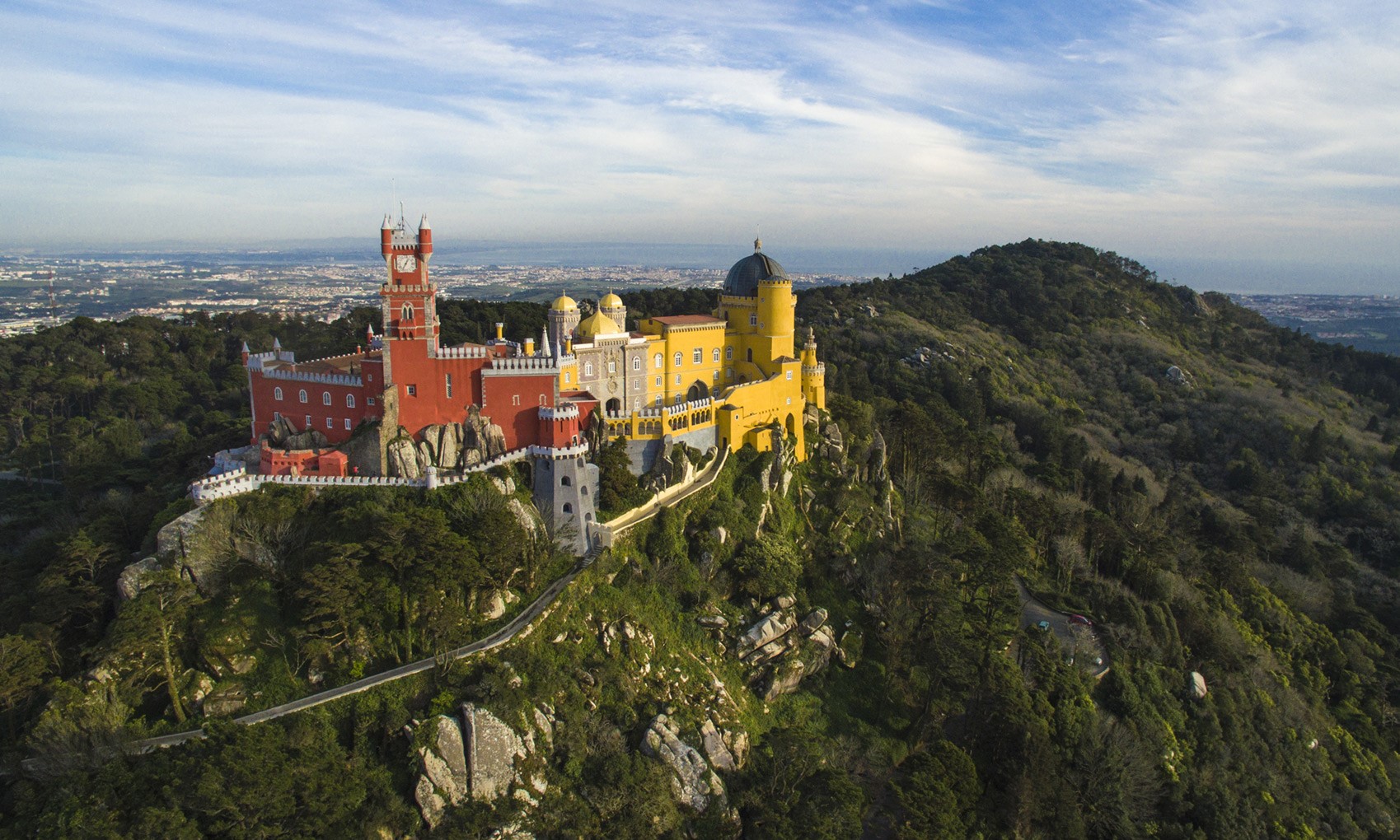
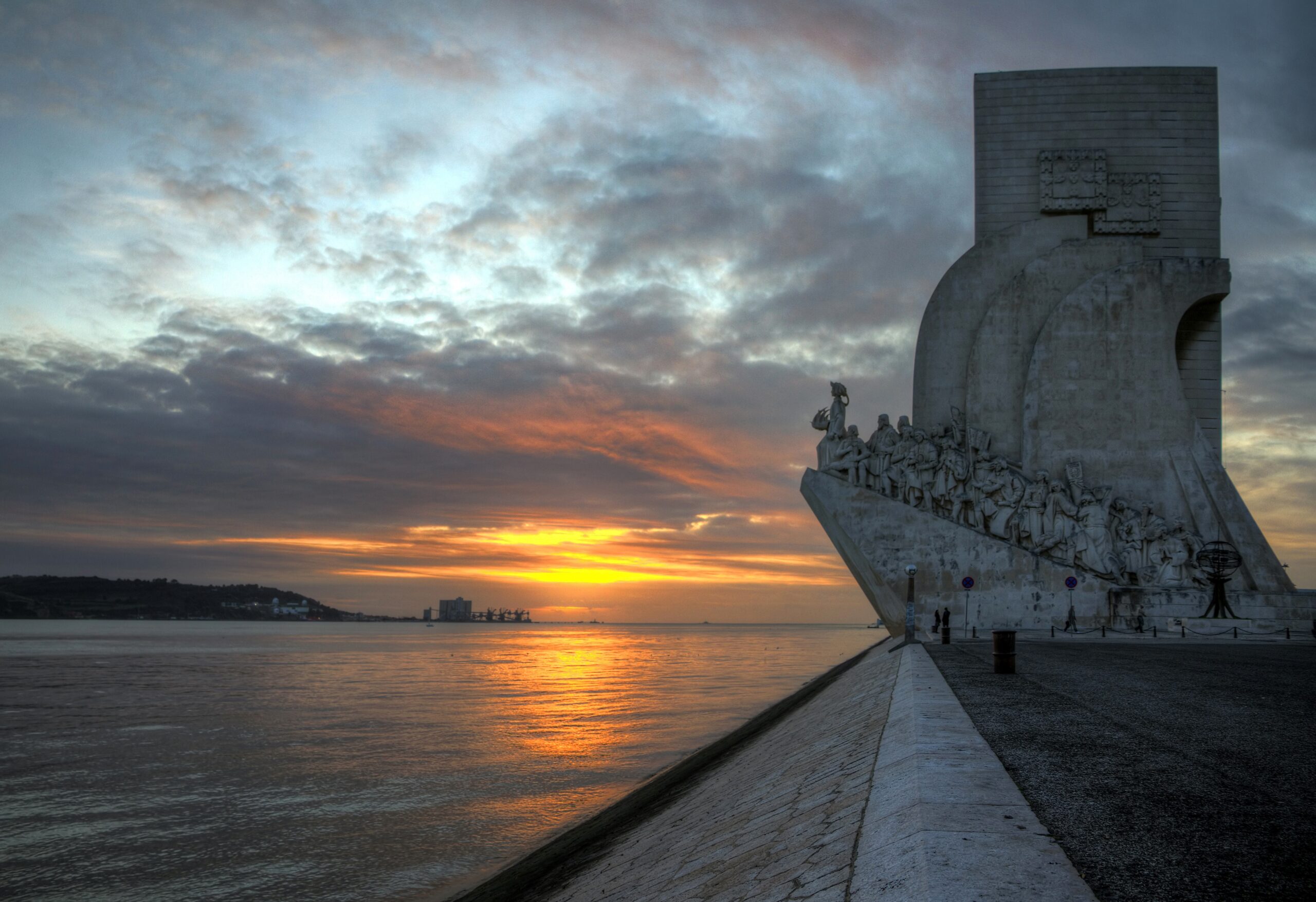
Day 1
You’ll begin your holiday by flying from the UK to Porto. Our driver will collect you on arrival for your transfer into the centre of the city. You’ll be staying at the Descobertas Boutique Hotel, close to Porto’s most famous landmark: the Ponte Luiz I bridge.
Day 2
You’ll explore Porto on our half-day walking tour, with visits to the Se Cathedral, Sao Bento train station, the Palacio da Bolsa, and the famous port houses in Gaia.
Day 3
You’ll head into wine country on our Douro Valley Wine Tour, visiting the Moscatel wine estate at Quinta do Portal, and Quinta do Bomfim in Pinhao – producer for both Dow’s and Graham’s Vintage port wines.
Day 4
You’ll head out of the city on a full-day tour of the historic cities of Braga and Guimaraes.
Day 5
You’ll leave Porto, driving south by hire car to the university city of Coimbra for a two night stay at Quinta das Lagrimas.
Day 6
You’ll explore Coimbra on foot – home to Portugal’s oldest academic institution, and the Biblioteca Joanina which houses many of Portugal’s most-important historical documents.
Day 7
You’ll leave Coimbra today, driving south to the city of Tomar – the former seat of Portugal’s Order of the Knights Templar – for a two night stay at the Hotel dos Templario.
Day 8
You’ll be free to explore Tomar’s historic architecture – the 12th century Convento de Cristo, the Igreja de Santa Maria do Olival and the Praca da Republica, and to the south of the city, the Castelo de Almourol.
Day 9
You’ll leave Tomar, driving south for a two night stay in Evora at the Hotel Albergaria do Calvario.
Day 10
You’ll have a free day in Evora – home to the Aqueduto da Agua de Prata, the picturesque Praca do Giraldo, the 1st century Templo Romano Evora and the infamous Capela dos Ossos (bone chapel).
Day 11
You’ll leave Evora, driving west to your final destination: Portugal’s vibrant and engaging capital city Lisbon. You’ll be staying downtown at the My Story Hotel Figueira.
Day 12
You’ll explore central Lisbon on our guided Tuk-tuk tour, with visits to Alfama, the Praca do Comercio, Bairro Alto and Chiado.
Day 13
You’ll have a free day to explore Belem and it’s historic landmarks: the Padrao dos Descobrimentos, the ornate 16th century Jeronimos Monastery and the Torre de Belem.
Day 14
For your final full-day, you’ll head west on a guided tour of the hilltop town of Sintra, the most westerly point of mainland Europe at Cabo da Roca, the popular seaside resort of Cascais, and the casino town of Estoril.
Day 15
You’ll be transferred to the airport for your flight home.
City Tours
A guided tour can be an incredibly useful introduction the layout, cuisine and culture of an unfamiliar city. Our friendly and engaging guides bring the country’s long history to life, whilst giving you an insight into daily life in modern-day Portugal.
Tours often provide you with a list of new sights to see, restaurant recommendations, and an invaluable insight into the dos and don’ts of Portuguese etiquette. You’re also supporting the local economy, local businesses, museums and galleries, and your money helps to preserve many of Portugal’s most-historic buildings.
Hiking
Portugal’s wonderfully diverse range of landscapes make it the ideal destination for hiking holidays. The granite mountains of the Serra da Estrela are Portugal’s highest range (peaking at 1993 metres), and its high plateaus and deep river valleys are home to over 400km of waymarked trails and a wealth of wildlife: boars, otters, golden eagles, peregrine falcons and the elusive Iberian wolf.
Moving south, the Aldeias do Xisto Schist Villages are a collection of timeless, fairy tale hamlets spread across the peaks of Lousa, Acor and Muradal. Centuries of Portuguese history and tradition are preserved in the region’s hearty cuisine and its convivial B&Bs.
The jewel in the crown of Portugal’s walking network is the Rota Vicentina. This cross-region trail network was created in 2012 to help boost the local economies of southern Alentejo and the Algarve – its routes are easily adaptable according to the distance and type of hikes you enjoy, traversing remote cliffs and obscure beaches, with the wild Atlantic Ocean as a backdrop.
Food and Wine
Portuguese cuisine has experienced something of a renaissance in recent times. Once sidelined in favour of more well-known dishes from neighbouring Spain, Portugal’s locally sourced produce and regional wines have moved out of their Iberian neighbour’s shadow to take their rightful seat at the top table of European cuisine.
The capital Lisbon is where many of the country’s long-held culinary traditions are being challenged by a new generation of chefs, whose exciting and imaginative reinventions of classics such as caldo verde, ameijoas a bulhao pato and bolinhos de bacalhau are allowing the best of the country’s sensational produce to shine. Iberian pork is much-coveted, particularly in the Central and Alentejo regions whose farming heritage give its cuisine rustic, hearty slant. Its organic credentials are impeccable: roaming ancient cork forests and subsisting on a diet of acorns which impart a strong, nutty flavour to the meat.
As the western outpost of mainland Europe and with over 900km of coastline, seafood is the backbone of the country’s cuisine. Grilled sardines (sardinhas assadas) are deeply embedded in Portuguese culture and are often central to many religious celebrations, particularly around the Tejo River basin.
There are also thirty-one Denominacao de Origem Controlada regions across the country, producing over two-hundred varieties of wine. Dao, Estremadura, Bairrada, Portimao, Tavira – Portuguese vineyards are low yield and exports don’t compare to France or Italy, and to truly enjoy these wines, you have to be in Portugal.
Guided Tours
Taking on a whole new region of Portugal can be a daunting prospect: studying guidebooks and maps, researching must-see sites and trying to miss those lesser-known hidden gems. Our tours remove the stress of planning and optimise your time, without you feeling rushed or hurried. Our guides will always have a plan, but we prefer private, flexible tours where you’re not tied to a strict timetable.
If you’d like to get your hands dirty in Tras-os-Montes vineyards, with time to savour a glass of local Vino Verde, so be it. If you want to combine out-of-the-way family-run vineyards with the timeless grandeur of medieval Marvao, let us make the arrangements.
Our guides are a treasure trove of local knowledge, and their in-depth insight and passion will unveil Portugal’s extraordinary history, culture and cuisine.
Cycling
From the ancient vineyards of the Douro valley, via the windswept Alentejo plains and down to the seaside towns of the Algarve. The beauty of exploring Portugal on two wheels is in its slowness – unhurried travel allows you to immerse yourself in your surroundings and to explore the country’s rich cultural heritage and unique traditions.
Whether you’re looking for a self-guided, point-to-point cycle touring holiday, a couple of guided road rides during your family holiday, or if you prefer to be off-road, riding natural and man-made singletrack – whatever your preference, we have the bikes, routes and rides to suit all abilities.
Kayaking, SUPs and Surfing
Portugal offers an exciting range of water sports to suit every adventurer: from paddleboarding, kayaking and canoeing, to world-class surfing, kitesurfing and windsurfing,
Northern Portugal is home to many of the best spots for inland water sports – kayaking, canoeing and canyoning are popular thanks to an abundance of lakes, lagoons and waterfalls, and the UNESCO-protected Arouca Geopark is considered one of the best locations in the country for white water rafting. For a more tranquil experience, the calm waters of the Castelo de Bode reservoir are ideal for paddle-boarding, whilst the Aguieira reservoir is a popular destination for sailing and fresh-water fishing.
For would-be adrenalin junkies, the surf schools at Espinho are perfect for surfing newbies. If you’re a seasoned pro, Nazare and Peniche are blessed with year-around consistent swells and a vibrant surf culture. With its exposed location on the far southwestern tip of the Algarve, Sagres has been a mecca for water sports enthusiasts for over fifty years. Its energetic waves and laid-back atmosphere attract old-school surfers and kiteboarders from across the world.
Fly drive from Porto to Lisbon through the Best of Central Portugal.

Stretching from the great northern city of Porto to the historic capital Lisbon, Portugal’s Central Region combines picturesque canals and historic architecture with world-class surf spots and snow-capped mountains.


Your holiday begins in bustling Cais Ribeira district, where the iconic the Ponte Luiz I bridge spans the grand Douro River and connects Porto with it’s twin city Vila Nova da Gaia. Gaia’s port houses have watched over the country’s most famous export for two centuries – you’ll have a chance to sample the three main styles of port wine: Ruby (the variation we typically see here in the UK), Tawny (aged longer for a more mellow flavour), and Branco (white port from white grapes, and served chilled).


You’ll also take a tour of the valleys and vineyards of the Alto Douro, where wines have been produced for over 2,000 years. To the east, you’ll explore the old roman city of Braga, the baroque roman catholic monument at Bom Jesus do Monte and the 10th century castle in Guimaraes: the birthplace of the Kingdom of Portugal.


Leaving Porto by hire car, you’ll begin your journey south. Your first stop is the pretty university town of Coimbra, home to Portugal’s oldest academic institution. You’ll also visit the medieval city of Tomar – founded by the Templars in 1118, the UNESCO-protected Convento de Cristo and Castelo Tomar are among Portugal’s most precious historic landmarks.


Similarly, in Evora you’ll visit the 1st century Templo Romano Evora – known locally as Diana’s Temple and one of the country’s best-preserved roman sites in Portugal – and the Capela dos Ossos: the macabre Bone Chapel situated in the Igreja de Sao Francisco.


Arriving into Lisbon, you’ll explore the capital on foot and by tuk-tuk with our resident guides, with visits to medieval Alfama, the grand Manueline monuments and monasteries of Belem, and the fairy tale hilltop palaces of Sintra.



Day 1
You’ll begin your holiday by flying from the UK to Porto. Our driver will collect you on arrival for your transfer into the centre of the city. You’ll be staying at the Descobertas Boutique Hotel, close to Porto’s most famous landmark: the Ponte Luiz I bridge.
Day 2
You’ll explore Porto on our half-day walking tour, with visits to the Se Cathedral, Sao Bento train station, the Palacio da Bolsa, and the famous port houses in Gaia.
Day 3
You’ll head into wine country on our Douro Valley Wine Tour, visiting the Moscatel wine estate at Quinta do Portal, and Quinta do Bomfim in Pinhao – producer for both Dow’s and Graham’s Vintage port wines.
Day 4
You’ll head out of the city on a full-day tour of the historic cities of Braga and Guimaraes.
Day 5
You’ll leave Porto, driving south by hire car to the university city of Coimbra for a two night stay at Quinta das Lagrimas.
Day 6
You’ll explore Coimbra on foot – home to Portugal’s oldest academic institution, and the Biblioteca Joanina which houses many of Portugal’s most-important historical documents.
Day 7
You’ll leave Coimbra today, driving south to the city of Tomar – the former seat of Portugal’s Order of the Knights Templar – for a two night stay at the Hotel dos Templario.
Day 8
You’ll be free to explore Tomar’s historic architecture – the 12th century Convento de Cristo, the Igreja de Santa Maria do Olival and the Praca da Republica, and to the south of the city, the Castelo de Almourol.
Day 9
You’ll leave Tomar, driving south for a two night stay in Evora at the Hotel Albergaria do Calvario.
Day 10
You’ll have a free day in Evora – home to the Aqueduto da Agua de Prata, the picturesque Praca do Giraldo, the 1st century Templo Romano Evora and the infamous Capela dos Ossos (bone chapel).
Day 11
You’ll leave Evora, driving west to your final destination: Portugal’s vibrant and engaging capital city Lisbon. You’ll be staying downtown at the My Story Hotel Figueira.
Day 12
You’ll explore central Lisbon on our guided Tuk-tuk tour, with visits to Alfama, the Praca do Comercio, Bairro Alto and Chiado.
Day 13
You’ll have a free day to explore Belem and it’s historic landmarks: the Padrao dos Descobrimentos, the ornate 16th century Jeronimos Monastery and the Torre de Belem.
Day 14
For your final full-day, you’ll head west on a guided tour of the hilltop town of Sintra, the most westerly point of mainland Europe at Cabo da Roca, the popular seaside resort of Cascais, and the casino town of Estoril.
Day 15
You’ll be transferred to the airport for your flight home.
City Tours
A guided tour can be an incredibly useful introduction the layout, cuisine and culture of an unfamiliar city. Our friendly and engaging guides bring the country’s long history to life, whilst giving you an insight into daily life in modern-day Portugal.
Tours often provide you with a list of new sights to see, restaurant recommendations, and an invaluable insight into the dos and don’ts of Portuguese etiquette. You’re also supporting the local economy, local businesses, museums and galleries, and your money helps to preserve many of Portugal’s most-historic buildings.
Hiking
Portugal’s wonderfully diverse range of landscapes make it the ideal destination for hiking holidays. The granite mountains of the Serra da Estrela are Portugal’s highest range (peaking at 1993 metres), and its high plateaus and deep river valleys are home to over 400km of waymarked trails and a wealth of wildlife: boars, otters, golden eagles, peregrine falcons and the elusive Iberian wolf.
Moving south, the Aldeias do Xisto Schist Villages are a collection of timeless, fairy tale hamlets spread across the peaks of Lousa, Acor and Muradal. Centuries of Portuguese history and tradition are preserved in the region’s hearty cuisine and its convivial B&Bs.
The jewel in the crown of Portugal’s walking network is the Rota Vicentina. This cross-region trail network was created in 2012 to help boost the local economies of southern Alentejo and the Algarve – its routes are easily adaptable according to the distance and type of hikes you enjoy, traversing remote cliffs and obscure beaches, with the wild Atlantic Ocean as a backdrop.
Food and Wine
Portuguese cuisine has experienced something of a renaissance in recent times. Once sidelined in favour of more well-known dishes from neighbouring Spain, Portugal’s locally sourced produce and regional wines have moved out of their Iberian neighbour’s shadow to take their rightful seat at the top table of European cuisine.
The capital Lisbon is where many of the country’s long-held culinary traditions are being challenged by a new generation of chefs, whose exciting and imaginative reinventions of classics such as caldo verde, ameijoas a bulhao pato and bolinhos de bacalhau are allowing the best of the country’s sensational produce to shine. Iberian pork is much-coveted, particularly in the Central and Alentejo regions whose farming heritage give its cuisine rustic, hearty slant. Its organic credentials are impeccable: roaming ancient cork forests and subsisting on a diet of acorns which impart a strong, nutty flavour to the meat.
As the western outpost of mainland Europe and with over 900km of coastline, seafood is the backbone of the country’s cuisine. Grilled sardines (sardinhas assadas) are deeply embedded in Portuguese culture and are often central to many religious celebrations, particularly around the Tejo River basin.
There are also thirty-one Denominacao de Origem Controlada regions across the country, producing over two-hundred varieties of wine. Dao, Estremadura, Bairrada, Portimao, Tavira – Portuguese vineyards are low yield and exports don’t compare to France or Italy, and to truly enjoy these wines, you have to be in Portugal.
Guided Tours
Taking on a whole new region of Portugal can be a daunting prospect: studying guidebooks and maps, researching must-see sites and trying to miss those lesser-known hidden gems. Our tours remove the stress of planning and optimise your time, without you feeling rushed or hurried. Our guides will always have a plan, but we prefer private, flexible tours where you’re not tied to a strict timetable.
If you’d like to get your hands dirty in Tras-os-Montes vineyards, with time to savour a glass of local Vino Verde, so be it. If you want to combine out-of-the-way family-run vineyards with the timeless grandeur of medieval Marvao, let us make the arrangements.
Our guides are a treasure trove of local knowledge, and their in-depth insight and passion will unveil Portugal’s extraordinary history, culture and cuisine.
Cycling
From the ancient vineyards of the Douro valley, via the windswept Alentejo plains and down to the seaside towns of the Algarve. The beauty of exploring Portugal on two wheels is in its slowness – unhurried travel allows you to immerse yourself in your surroundings and to explore the country’s rich cultural heritage and unique traditions.
Whether you’re looking for a self-guided, point-to-point cycle touring holiday, a couple of guided road rides during your family holiday, or if you prefer to be off-road, riding natural and man-made singletrack – whatever your preference, we have the bikes, routes and rides to suit all abilities.
Kayaking, SUPs and Surfing
Portugal offers an exciting range of water sports to suit every adventurer: from paddleboarding, kayaking and canoeing, to world-class surfing, kitesurfing and windsurfing,
Northern Portugal is home to many of the best spots for inland water sports – kayaking, canoeing and canyoning are popular thanks to an abundance of lakes, lagoons and waterfalls, and the UNESCO-protected Arouca Geopark is considered one of the best locations in the country for white water rafting. For a more tranquil experience, the calm waters of the Castelo de Bode reservoir are ideal for paddle-boarding, whilst the Aguieira reservoir is a popular destination for sailing and fresh-water fishing.
For would-be adrenalin junkies, the surf schools at Espinho are perfect for surfing newbies. If you’re a seasoned pro, Nazare and Peniche are blessed with year-around consistent swells and a vibrant surf culture. With its exposed location on the far southwestern tip of the Algarve, Sagres has been a mecca for water sports enthusiasts for over fifty years. Its energetic waves and laid-back atmosphere attract old-school surfers and kiteboarders from across the world.

